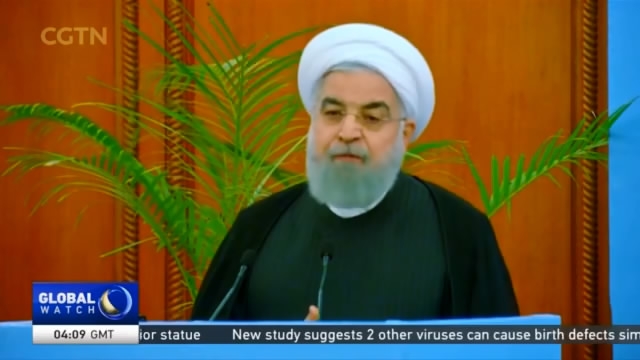
13:39, 18-Feb-2018
US-Iran Tensions: US calls for action to halt Iran's growing 'network of proxies'

The US National Security Adviser H. R. McMaster has accused Iran of seeding more destructive weapons into the network of proxies in countries like Syria, Yemen, and Iraq. He also reiterated the country's hard stance on the 2015 Iran Nuclear Deal. Iranian President Hassan Rouhani criticized the US as "intervening in the internal affairs" of Middle East nations. And he vowed to stick to the nuclear deal.
"The United States is again pointing fingers at Iran. US National Security Adviser H. R. McMaster said at the Munich conference on Saturday that Iran is building and arming an increasingly powerful network of proxies in countries like Syria, Yemen and Iraq that can turn against the governments of those nations."
H.R. McMASTER US NATIONAL SECURITY ADVISER "We know that Syria and North Korea are not the only rogue states developing, using, spreading dangerous weapons. Now is the time to address serious flaws in the Iran deal and counter Iran's destabilizing activities, including its development and proliferation of missiles and its support for terrorist proxies and militias that fuel destructive conflicts across the greater Middle East."
In response, Iranian President Hassan Rouhani lashed out at the US on Saturday during his three-day visit to India. He described the US as "intervening in the internal affairs" of Middle East nations.
HASSAN ROUHANI IRANIAN PRESIDENT "Why did they invade Iraq? Why are they in Syria now? Why have they occupied a part of Syria now? And why is the US intervening in the internal affairs of the countries in the region? We know that selling arms is a very profitable business. We are aware that the factories that produce arms need customers."
He also touched on US President Donald Trump's threat to scuttle the 2015 Iran nuclear deal. Rouhani said, "politics without adhering to one's commitment and promises cannot resolve the conflicts and problems of the current world."
HASSAN ROUHANI IRANIAN PRESIDENT "After signing an agreement, haggling is ridiculous. If the U.S. violates this agreement I don't want to give slogans and just talks, I say here for the record, you will see that America will regret its decision."
Under the agreement signed with the United States, Britain, France, Germany, Russia and China, Iran agreed to limit its nuclear activities in return for the lifting of many sanctions. U.S. President Donald Trump insists that Iran violated the accord and has been pushing for changes to the agreement. But Trump is not widely supported, as most parties believe that Iran has followed the agreement, and that the international community should adhere to what was agreed upon.

SITEMAP
Copyright © 2018 CGTN. Beijing ICP prepared NO.16065310-3
Copyright © 2018 CGTN. Beijing ICP prepared NO.16065310-3